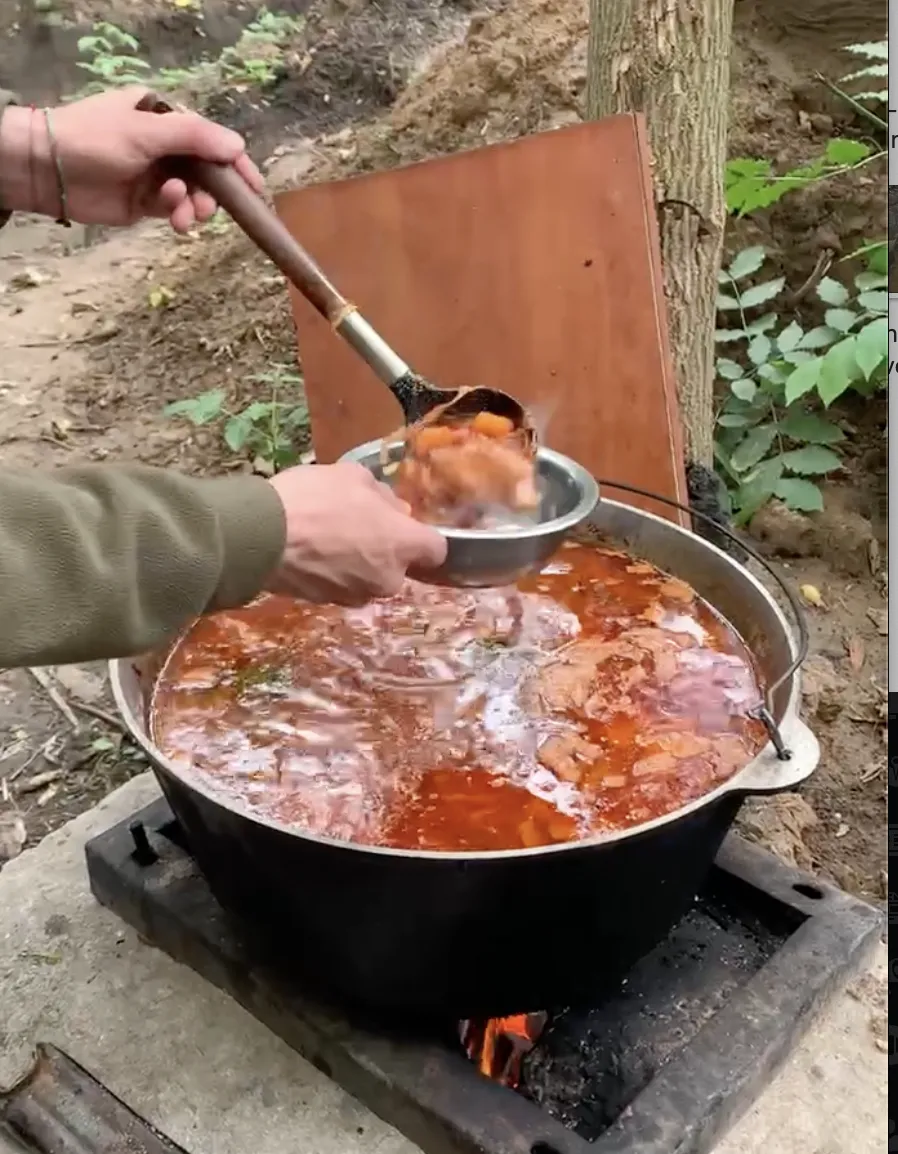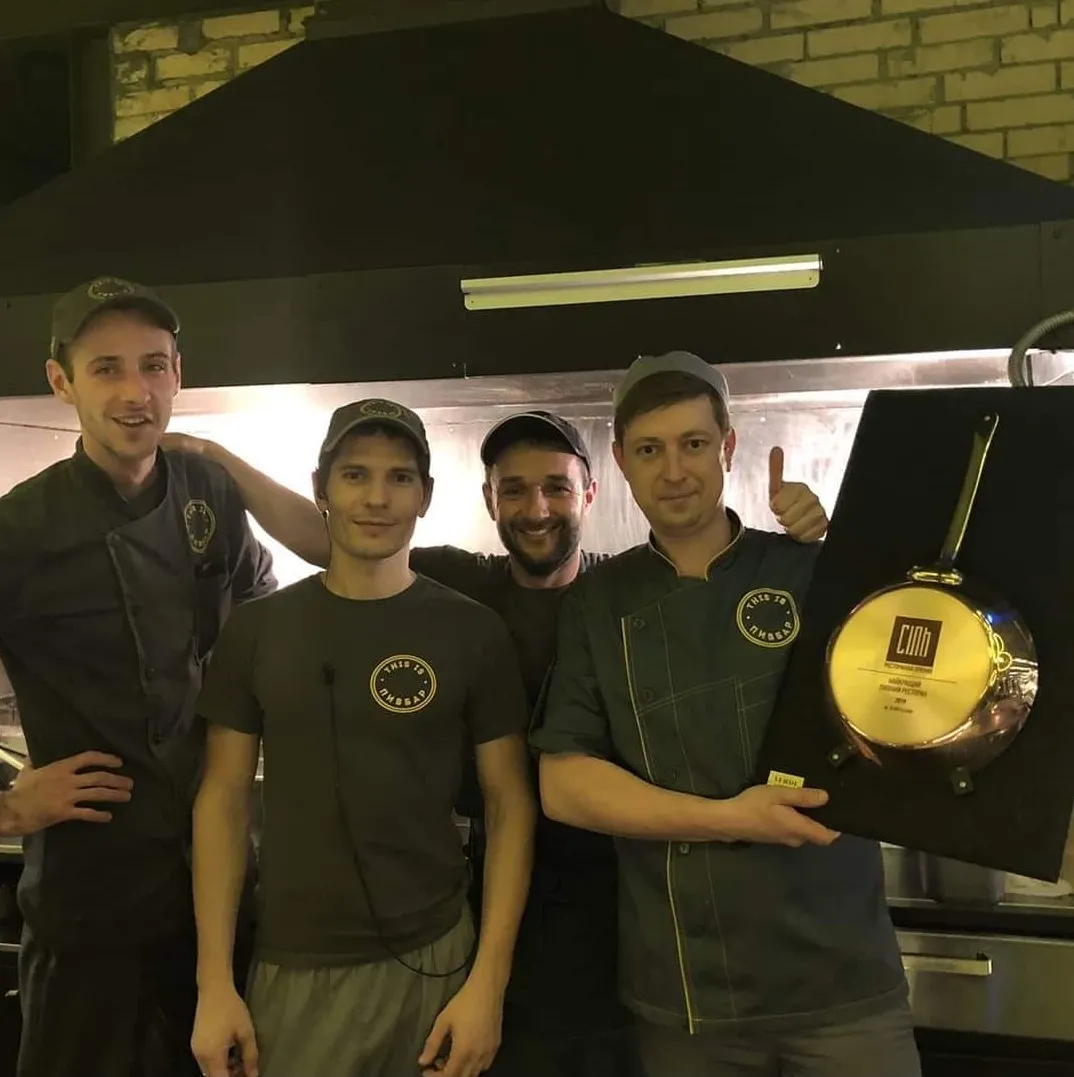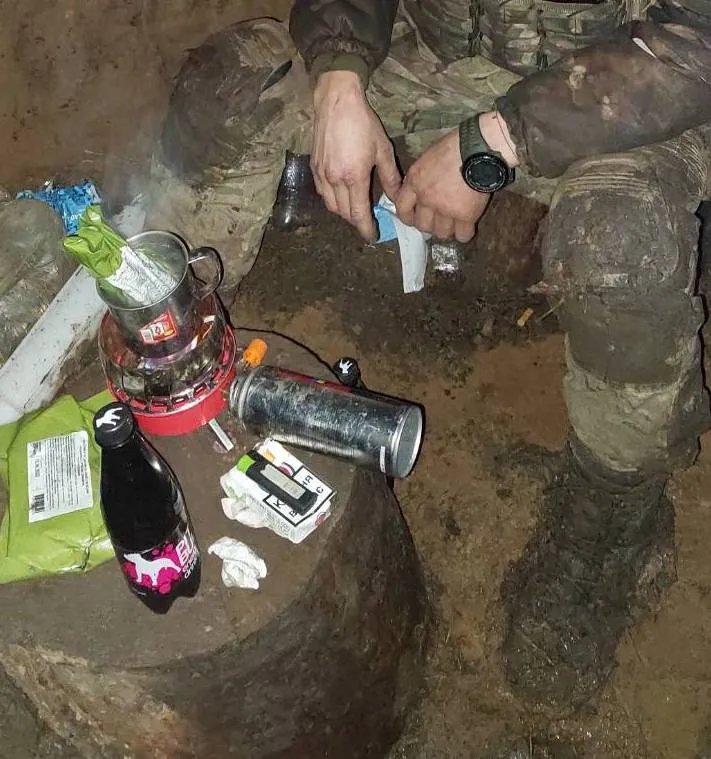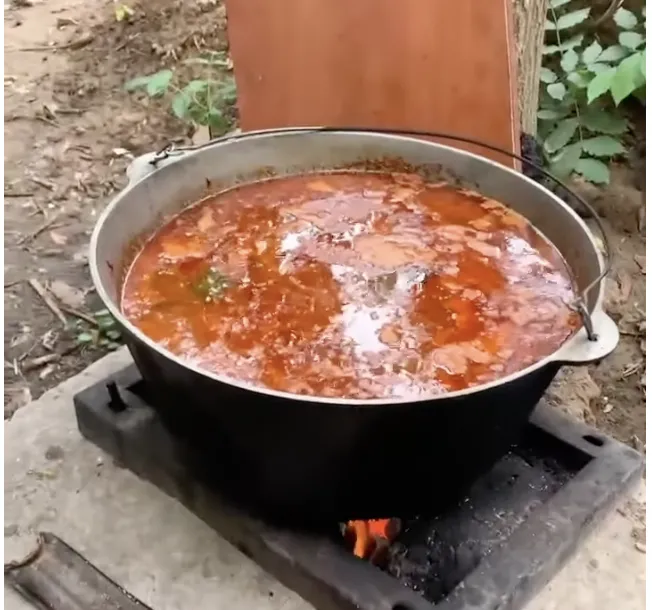Dmytro’s Borscht.
Ingredients (quantities vary):
2-3 bottles of fresh water
Sunflower oil
Pork, or whatever meat is available
Potatoes
Cabbage
Beet root
Carrots
Onion
Tomato paste
One or two cans of beans
Dry garlic
Bay leaf
Salt
Pepper
Preparation:
First, cut the meat, onion, potatoes into small cubes. Grate the carrots, cabbage, and beet root.
Then, put a little sunflower oil in the pot and heat as best you can on your improvised stove.
Once the oil is hot, lightly fry the meat and vegetables.
Next, pour two or three bottles of water into the pot and bring a boil.
If your stove is only bricks and firewood, this might take a while.
Add a little tomato paste and let boil for 10-15 minutes.
Add more water, as needed, then the salt and pepper to taste, along with dry garlic, if you have it.
Finally, light one bay leaf on fire and throw it immediately into the pot, then add the canned beans.
Stir until hot.
Serve.




